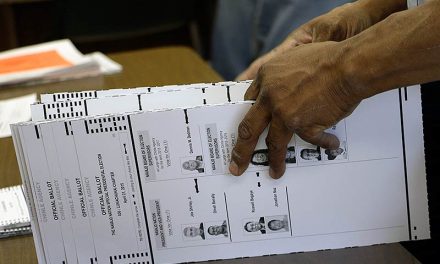
Need for water projects estimated at $4B
WINDOW ROCK
The Resources and Development Committee approved two resolutions on Nov. 3 that would further the journey toward electricity and water for Diné people across the Navajo Nation.
The RDC approved a request to the U.S. Congress and President Joe Biden to approve additional federal funds for water projects throughout the Navajo Nation. The committee also approved a right-of-way to Continental Divide Electric Coop for the Chichiltah Single Phase, 14.4 KV electrical powerline extension.
Roselyn John, Chilchitah Chapter’s community services coordinator, said they have been working on this legislation for several years with Continental Divide.
She said they have all been working diligently to get power to the community of Chichiltah. However, they ran into challenges throughout the process. The main challenge was the right-of-way issue that was solved at RDC’s regular meeting.
“Our community has about 60 percent without electricity so we really need this legislation to be approved,” John said.
She also said neighboring communities south of Gallup, including Red Rock and Zuni Pueblo, also are dealing with rights-of-way issues.
Delegate Mark Freeland said, “As a delegate, I’ve been to homes who are lacking these basic needs and if we can really emphasize that whether it’s through state funding or, in this case, ARPA funding, we’re going to really change some lives.”
Since RDC has full authority to grant final approval for rights-of-way, the motion passed for Continental Divide with no opposition and little discussion, 5-0.
The same enthusiasm showed when the committee discussed the need to OK legislation to request more funding for Navajo water projects from Congress and President Joe Biden.
While no specific amount was stated for the request, a rough estimate was provided by Jason John, director of the Navajo Department of Water Resources.
John said his office has updated water projects and the total funding needed is approximately $4 billion.
However, he said this amount does not include cleanups and is instead focused on providing quality water to people on the Nation who do not have access to water.
“It’s a very important legislation asking the United States government, more importantly Congress, to fulfill trust obligations as well and to consider that because the majority of our people are still living without running water or electricity or even bathrooms on the Navajo Nation,” Freeland said.
Freeland supported the legislation and said if the Navajo people had running water, electricity and bathrooms then it would have a positive impact on the Nation’s COVID-19 situation.
He said that it is best to address the issue now so future generations will not wonder why the issue was not fixed.
“We don’t want to find ourselves in any situation in the future for thinking we had an opportunity to adjust these matters,” Freeland said. “Now we have that with ARPA, but we need additional resources as well.”
Delegate Wilson Stewart Jr. said the morning before the RDC meeting, he had a planning meeting with Red Lake and in this meeting, the wildlife department came in and did a presentation requesting for support resolutions for water.
He said Council should do whatever they can to help and try to ease the living conditions of the Diné people.
The RDC voted to send the resolution to Budget and Finance and the Naabik’iyati committees.








 Highway 264,
Highway 264, I-40, WB @ Winslow
I-40, WB @ Winslow